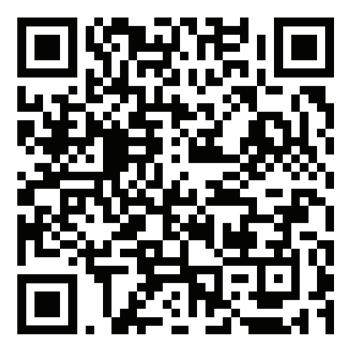






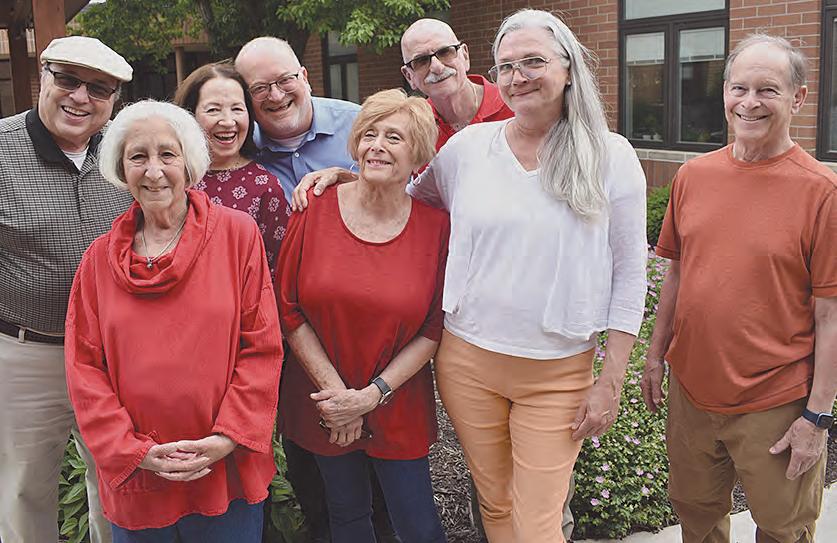
ANNETTE VAN DE KAMP-WRIGHT
Jewish Press Editor
The Rose Blumkin Jewish Home renovations are well underway, bringing needed updates and improvements. It’s something that cannot be done without donors who care deeply about continuing the level of care the Blumkin Home is known for. This week, we hear from members of the L.O.V.E. board.
Over the past 50-plus years, the sole purpose of the L.O.V.E. organization has been to raise funds to purchase specific items that
improve and enhance the lives of Blumkin Home residents. The funds raised by L.O.V.E. support many special projects that benefit residents of the Home and their caregivers. Now, that support also comes in the form of a monetary donation from the L.O.V.E. board to the Home.
I have had family members and dear friends become residents of the Rose Blumkin Jewish Home. It is an honor to serve on the L.O.V.E. board and, in a small way, repay the staff for the quality of care they provide. I have spent a great deal
See Why do you Give? page 2
PAM MONSKY
JCRC Assistant Director
In partnership with HBO and the Secure Community Network, the Omaha Jewish community has been chosen for a screening of the HBO documentary A Tree of Life: The Pittsburgh Synagogue Shooting on Aug. 20 at 6:30 p.m. in the Alan J. Levine Theater at the Staenberg Kooper Fellman Campus of the Jewish Community Center. The film will be followed by a Q&A with survivors of the attack –the deadliest assault on the American Jewish community in U.S. history.
The following day, Aug. 21, from

Credit: HBO
11:30 a.m.-1:30 p.m. the community is invited to a security training hosted by SCN and the Jewish Federation of Omaha in the Goldstein Engagement Venue. Lunch is included
MELANIE SCHWARZ
Jewish Press Intern
Hi, I’m Melanie Schwarz! If that name sounds familiar, it may be because I’ve been going to the Staenberg Jewish Community Center, since I was a kid. I started coming to the J at about six months old, as I attend the Pennie Z. Davis Childhood Development Center, now known as the Early Learning Center for preschool. After graduating
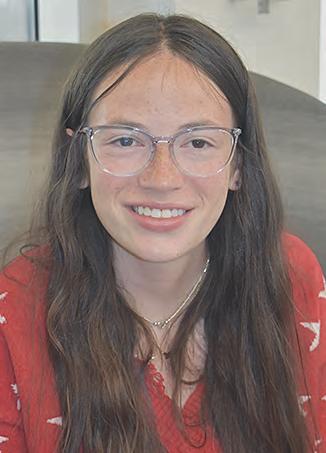
from the ELC, I attended Friedel Jewish Academy for kindergarten and first grade. I then went on to attend Westside for the rest of my elementary, middle, and high school educcation. However, that didn’t mean that I stopped coming to the J.
at no cost.
Registration is required for both events using the QR code or emailing pmonsky@ jewishomaha.org
ABOUT THE
On Oct. 27, 2018, a gunman opened fire inside a Pittsburgh synagogue, murdering 11 people as they prayed, in what would become the deadliest antisemitic attack in American history. A Tree of Life: The Pittsburgh Synagogue Shooting is a deeply personal portrait of the survivors, victims, and family members, who share their harrowing first-hand accounts of the impact of the shooting on the community. The film is rooted in a community working to rebuild and heal in the aftermath of a violent attack. Despite core differences, they come together to determine what justice looks like and See A Tree of Life page 3
Throughout my childhood I participated in six plays at the J, starting with Wizard of Oz and ending with Bye Bye Birdie. I then started attending J camp. I was a Leader in Training for two summers in 2017 and 2018. The leader in training is a program done in conjunction with J camp. High school-aged kids get hands-on experience working with kids while also getting trained and having their own fun. I loved it because I sort of got to be both a camper and a counselor. If we skip ahead a couple summers I began working at the J in the summer of 2021 at the ELC and as a Lifeguard. I no longer work at the ELC, but I am still a Lifeguard, and you can still see me at the pool this summer.
I am a member of Beth El Synagogue, I went to Hebrew School all throughout my childhood up until I graduated high school three years ago. I was Bat Mitzvahed at 13 in 2016. I also participated in United Synagogue Youth all throughout high school and got to go to a lot of conventions. From ages eight to 15 I attended Herzl Camp as a camper, and it’s still, to this day, one of my favorite places in the world. I love camp for so many reasons, one being that it’s a place where I thought I could completely be myself. I didn’t have a lot of Jewish friends in school, but camp was See Meet our intern page 3




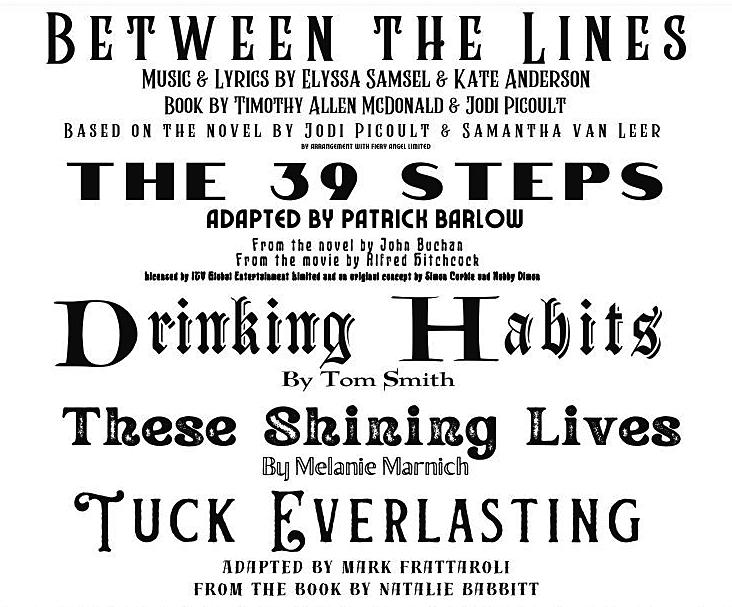

Continued from page 1 of time there and feel our community is very lucky to have the RBJH available to us. Other facilities do not compare.
The Rose Blumkin Jewish Home has consistently demonstrated excellence in providing compassionate high-quality care to its Residents. The Blumkin Home stands out for several reasons. The staff maintain, the highest standards of care, ensuring each resident receives personalized attention tailored to their individual needs. Their support staff work tirelessly to provide a nurturing environment, and the facility offers a home environment with innovative programs that enhance the quality of life for Residents and family, including PT, OT, social activities and mental health support. Their holistic approach towards care helps residents remain active and engaged, both physically and mentally.
Over the years, The Rose Blumkin Home has received numerous awards and recognition for its outstanding service. These accolades are a testament to their unwavering commitment to excellence in elder care. “Ms. Betty”, as she was lovingly known, was my significant other’s mother. She lived the last six years of her life in this community. Although blind, she felt and saw all due to the care she received. With total support, I encourage each of you to learn more about this beautiful home for our aged.
The Rose Blumkin Jewish Home is a crucial part of our Jewish community. We are incredibly fortunate to have the best facility available to care for people in our community when they need a higher level of care. In 2012, I moved my parents from Wichita to Omaha. They moved into an assisted living community. Seven years later, Dad had passed away and Mom needed to move to a place that could provide more care. Because Mom was on Medicaid Waiver, the assisted living staff explained to us that there were few options and not at the most highly rated places. When I told them that we had already made arrangements to move Mom to Blumkin, their faces brightened considerably. They were thrilled that Mom would be moving to the best possible place. Not surprisingly, Mom wanted to stay at assisted living and resisted moving to Blumkin. But a few months after moving to RBJH, she was extremely happy with the change. She even said repeatedly that she wished she had moved to the Blumkin Home earlier and not spent seven years in assisted living. Mom really enjoyed her time at the Rose Blumkin Jewish Home playing Mah Jongg, attending the resident council meetings, trying her hand on art projects, and so much more. The staff provided such wonderful care, and it was always a pleasure to work with them.
JAY DURMASKIN
My dad, Danny Goodman, was at the Blumkin Home for eight years. I could not believe the care he had, all the activities that they do to keep the residents busy. What I really loved was the attention paid to Husker football, including the snacks!
RICKI SKOGG
Community support for our elders has always been magnified in our Jewish practice. The most contributive members need little and give so much more. We’re asked to stabilize their well-being. When I volunteer it makes me feel peaceful.
Having a Jewish perspective is a gift we can’t always comprehend. I think the idea that you don’t have to explain culture, that’s powerful to the recipient. Someday that might be you or someone you love. How many times, as a kid, did you have to explain a holiday to a friend? It’s beautiful that at the most vulnerable time of our lives, we can just be in our culture.
The Blumkin Home has touched my life from the time I went to the mikvah (at the Dr Sher Home) before my wedding, in 1978, until now, when my mother has been cared for there for the past two years. I feel a deep connection to Blumkin, not only for the care of my mother, but for all the people I have known who received that loving, life-supportive attention. Our entire family knows that their Bubby is safe and cared for. The best part of that security, for me, is knowing that the same care is there for any member of our community. There is no substitute for that kind of security and confidence. I could not feel prouder to share the presidency of L.O.V.E., with Jay, giving back some of what they have given me.
M’LEE HASSLINGER
I feel it is our moral and ethical responsibility as Jews to take care of our elders. It should be of prime importance to provide quality services, activities, and programs for the members of our Jewish Senior community showing them the respect and love they so richly deserve; so they can live out their lives with pride and dignity. I hope that my involvement with L.O.V.E. and my past role as its co-president has facilitated this purpose.
LARRY DEBRUIN
I am (probably) the newest L.O.V.E. board member. Most of my experience with L.O.V.E. stems from the past six or seven years since my aging parents left St. Louis where they grew up, met, married, raised children, and enjoyed their grandchildren. I was able to convince my siblings that Mom and Dad should move to Omaha and live at RBJH.
As a kid, I watched my maternal and paternal grandparents growing old and observed my parents moving their parents from their homes into nursing homes. As a kid I visited my grandparents and my maternal great grandmother in those places. RBJH was, is and always will be the antithesis of my childhood memories of elder care. And L.O.V.E. plays a large and essential role ensuring that my family and I, as well as all families here in Omaha, are taken care of. L.O.V.E. is about true caring, dignity, joy, gifts and smiles and activities. L.O.V.E. ensures each generation of the young here in our community will have a very different experience visiting their loved ones when they grow old and are unable to live independently. Everyone, regardless of age, benefits from L.O.V.E. and there’s a myriad of big and small contributions to RBJH. I know my parents did, and should I ever need a care facility, there is no other place than RBJH to consider.
GARY LERNER
Our goal is to give items that can be enjoyed and utilized by most of the Residents, if not all, can benefit from. It is our privilege and honor to take care of our elderly residing at the Blumkin Home.
JAY KATELMAN
JFO Director of Community Development
Jewish Business Leaders returns on Aug. 16, at the Staenberg Omaha JCC, and will featureAndy Ruback from Flood Communications. The event will be from 7:30–9 a.m. Please use the QR code to register.
Why is Andy’s story so compelling? It’s not just about the success of Flood Communications, Nebraska’s largest locally owned media company, which boasts the most extensive social media following in the state. It’s about the journey—how Andy, from his early days in radio, launched his own entertainment newspaper, and helped grow the largest media company in Nebraska. It reaches across television, and radio, covers Hispanic and digital platforms, and includes News Channel Nebraska and Telemundo Nebraska.
Andy’s narrative is one of genuine passion, strategic innovation, and a commitment to community. He’s expanded Flood Communications to 11 offices with 200 employees, all while maintaining a culture of openness and innovation. His approach to sharing his entrepreneur-
ial path—acknowledging both triumphs and setbacks with honesty and insight—provides invaluable lessons on resilience and leadership.
Alex Epstein, JBL founder, said:
“What Andy has quietly accomplished blew me away. It’s essential that his story and success are shared with the entire community. Andy’s journey, with all its highs and lows, is exactly the kind of tale that resonates with the JBL program.”
At the event, you’ll get an inside look at how Flood Communications navigates the modern media landscape, adapts to trends and engages diverse audiences. Andy’s perspective on the media’s role in society, especially in fostering community connections and supporting local businesses, underscores the profound impact of conscientious media leadership.
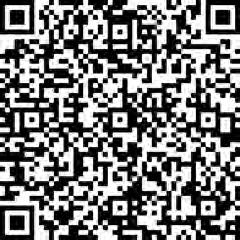
Join us to hear Andy’s story, a testament to the power of visionary entrepreneurship and its ripple effects throughout our community. This JBL promises not just insights into the media industry but also inspiration drawn from Andy’s dedication to growth, learning, and giving back.
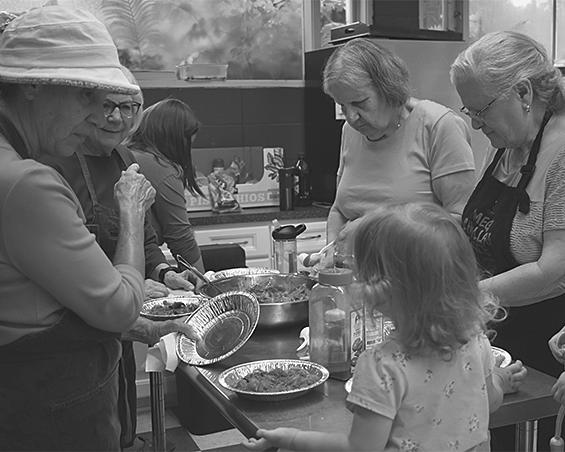
MELANIE SCHWARZ
Jewish Press Intern
On July 2 Chabad’s ‘Cooking Club Lunch Clatch’ met at the Chabad House. The club was created to share recipes, cook, eat together, and get to know new people. It takes place once every month, and on this day we made Rabbi Eli’s Shakshouka and Minnie Abramowitz’s Mandel Bread.
Elly Gordman attends the club every month. She enjoys going because she has enjoyed meeting a group of women who like cooking and eating different foods each month.
“Everyone works together to cook and clean up,” she said. “The best part of our time together is visiting with each other while we enjoy the food we have just cooked.
In the past, she enjoyed cooking with her family for holidays such as Rosh Hashanah, Thanksgiving, and Hanukkah, but this is the first time she has cooked in a non-family group.
If you have never cooked with others, you

are welcome to come and try it out. You would be in good company!
It’s easy to see why people enjoy attending. Participants get to cook, get to know people, hang out with old and new friends, and learn some new recipes .
The Cooking Club Lunch Clatch is held every month on the first Tuesday, and participants can attend any month that they would like. There are new recipes every month. You can get new recipes to add to your repertoire and family recipe book for meals now and in the future. You may even be able to start creating a family cookbook for future generations.
For more information about Chabad’s Cooking Club Lunch Clatch, please contact Mushka Katzman at Mushka@ochabad.
org Melanie Schwarz is the 2024 Jewish Press Intern. The Jewish Press Internship is made possible through the generosity of the Chesed Fund.
Continued from page 1 always a place where I had this huge part of my identity in common with everyone. Once I met all my best friends, there wasn’t anything that would stop me from going back the next year. I connected with the place so much my first summer, the environment, the people, even just the place itself. Every year, achieving new goals and traditions was always an amazing feeling and just kept me coming back. Overall I think that’s the biggest reason why I continue to love Judaism: because of the memories and traditions I made along the way. Well, all that, and the month I spent in Israel 5 years ago.
I attend the University of Denver, and am going to be a senior in the fall. I recently turned 21. I’m a Communication Studies Major, with Minors in Sociology, and Media
Film Journalism Studies.
I’m also planning to go to grad school starting next fall, but I haven’t figured out where yet. I’m a Delta Zeta. It’s where I met all my best friends and my favorite part of being at school. I went abroad last fall and studied in Athens, Greece. I was there from September to December and traveled a bit around Europe while I was there. I went to was London, which, of course, is the only other place in Europe where you have to have a passport to go to from Greece.
I’m excited to get started this summer, to be able to write more, and get better at it. This will help me a lot with my senior year, and beyond.
The Jewish Press Summer Internship has been made possible by the Chesed fund, (formally Murray H. & Sharee C. Newman Supporting Foundation) at the JFO Foundation.
Continued from page 1 how best to move forward while honoring and learning from the past. The film sheds light on the collective trauma suffered by a tight-knit group and brings into sharp focus the hatebased rhetoric surrounding many of the mass shootings today, threatening the fabric of our society. The story of the attack is told through voices from the commu-
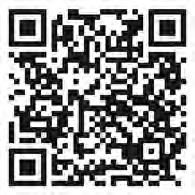
nity, including Carol Black, Dr. Joseph Charny, Anthony Fienberg, Martin Gaynor, Audrey Glickman, Daniel Leger, Hannibal Lokumbe, Wasi Mohamed, Rabbi Jeffrey Myers, Brad Orsini, Rabbi Jonathan Perlman, Michele Rosenthal, Diane Rosenthal, Augie Siriano, Ellen Surloff, Andrea Wedner, Stephen Weiss, Barry Werber, Eliezer Rosenthal, and Joy Rosenthal.

SHARON BRODKEY
JCRC Executive Director
There are many organizations we partner with and rely upon for timely and accurate information about antisemitic intelligence, incidents, and trends. They include law enforcement agencies and a veritable alphabet soup of organizations, foundations, researchers, media, and advocacy groups – ADJ, AJC, AMCHA (not an acronym, but very important to include)
CAM, CUFI, FCAS, IHRA JCPA, JFNA, JPPI, MEMRI, SCN, SWU, WJC, and these are just a few of them focused on the U.S.
How many can you name*?
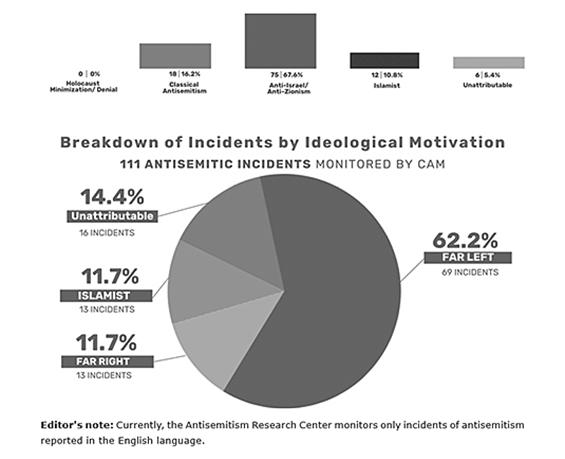
ALPHABET SOUP GLOSSARY
Anti-Defamation League
American Jewish Committee
Combat Antisemitism Movement
Christians United For Israel
Foundation to Combat Antisemitism
International Holocaust Remembrance Alliance
Jewish Council for Public Affairs
Jewish Federations of North America
Jewish People Policy Institute
Middle East Media Research Institute
Secure Communities Network
Stand With Us
World Jewish Congress
For those who like to monitor things in (almost) real time, there is the ADL’s heatmap, SCN’s daily email reports highlighting events featured in mainstream and Jewish media, and one of particular interest is the Combat Antisemitism Movement’s (CAM) Weekly Roundup, which includes a visual representation of incidents and crimes reported in English, meaning they do not fully represent the scope of antisemitism in any given week. It has always been extremely impor-
tant to seek out reliable information, but even more so since Oct. 7, 2023. In addition to the definitions, talking points, and guides found in JCRC’s online resource library, we have included links to non-law enforcement organizations that we partner with and consult in our daily work to keep our Jewish community safe.
We encourage and repeat the message to everyone in our community, our friends, and our allies to “Speak up!”, and “When you see something, say something!” Sometimes, though, when we hear or see something antisemitic, we may feel uncomfortable or unsafe speaking up. In those cases, reporting incidents is particularly critical. Even if something may seem trivial to you, reporting allows us to measure trends and know where we need to take action. Do not hesitate to call JCRC with any questions or concerns you may have and stay informed. Use our reporting tools on www.jewishomaha. org or pick up the phone and call us.
“Am I my brother’s keeper?” The first person to utter this question was Cain (in Genesis 4:9), who more than likely hoped for an answer in the negative. It is clear, though, that readers of the Bible are intended to respond in the positive: Yes, I am my brother’s (and sister’s) keeper.
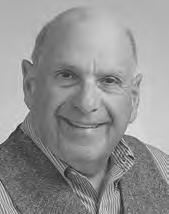
In contemporary society an appropriate response to this eternal query is decidedly more mixed. For example, advice columnists tend to proffer resounding hands-off responses. A Canadian asks, “My brother is a lifelong heavy smoker.... I’ve nagged and at times pleaded with him to stop [smoking]. Where do my ethical obligations to ‘be my brother’s keeper’ begin and end on this matter?”
According to the expert (in the Toronto Star), the inquiring writer “should get off your brother’s case.... Your intentions are noble, but all you’re accomplishing is distancing yourself from him and making him feel guiltier than he already feels.... Your brother, in this case, has to be his own keeper.”
Such pragmatic negations of “keeping” our brothers are countered elsewhere. For example, a correspondent in Malaysia’s New Straits Times writes: “I am my brother’s keeper. I say it not out of some misplaced sense of responsibility or schmaltzy sentimentality. I say it as it is part of some higher calling.”
Even more expansive is the definition of brother that encompasses those to whom we have no blood relationship, as in a Newsday story titled My Brother’s Keeper: A Long Island Veteran Makes Sure a Brother in Arms Is Buried with Dignity This account narrates efforts to provide a proper burial for a veteran who had died “penniless and long separated from his family.”
It can even cross species: “There is a deep beyond-its-years wisdom in Suma’s eyes—a look that speaks of a shared understanding between keeper and orangutan about the animal’s precarious existence, and the lifelong dedication of zoo
See My brother’s keeper page 6


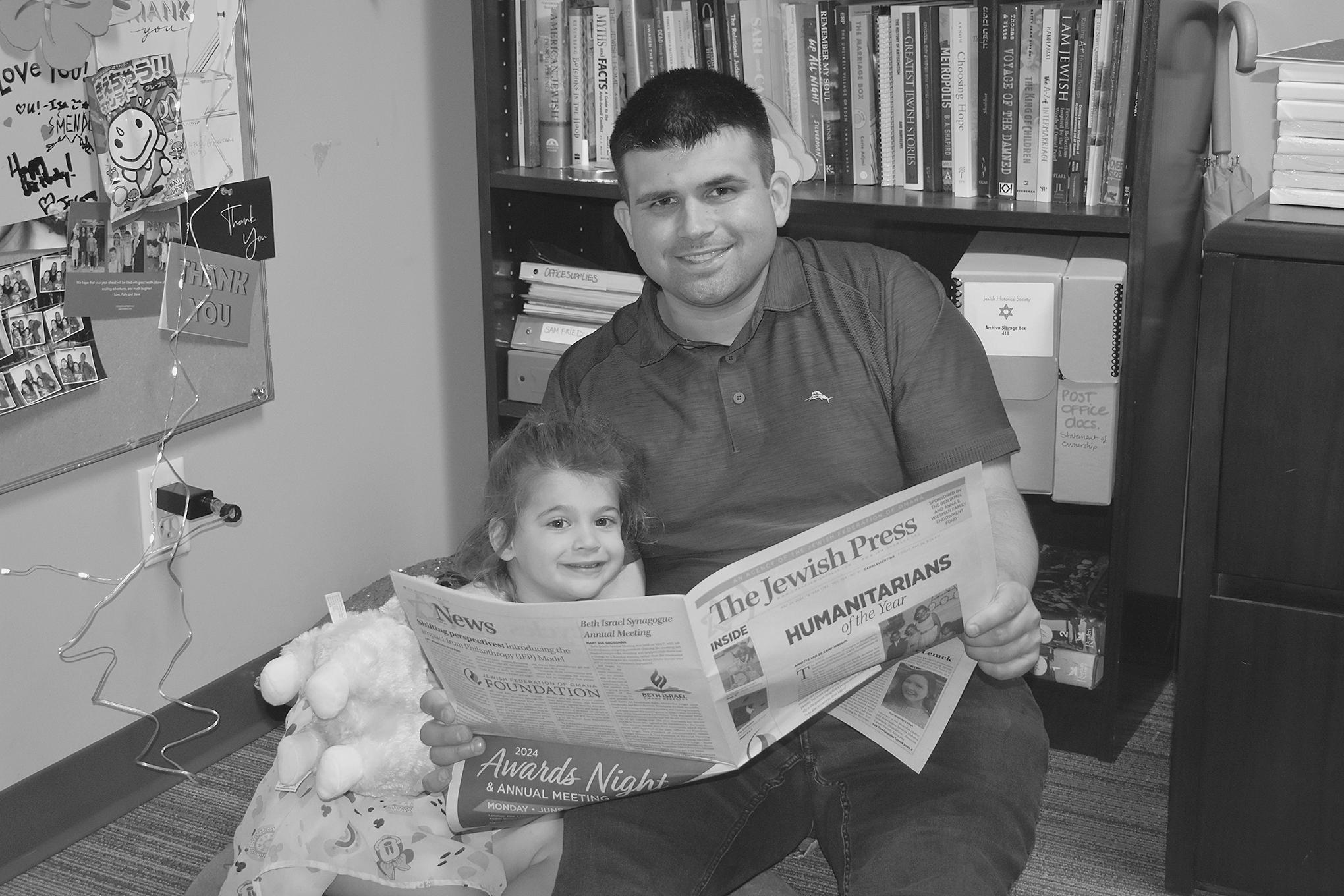
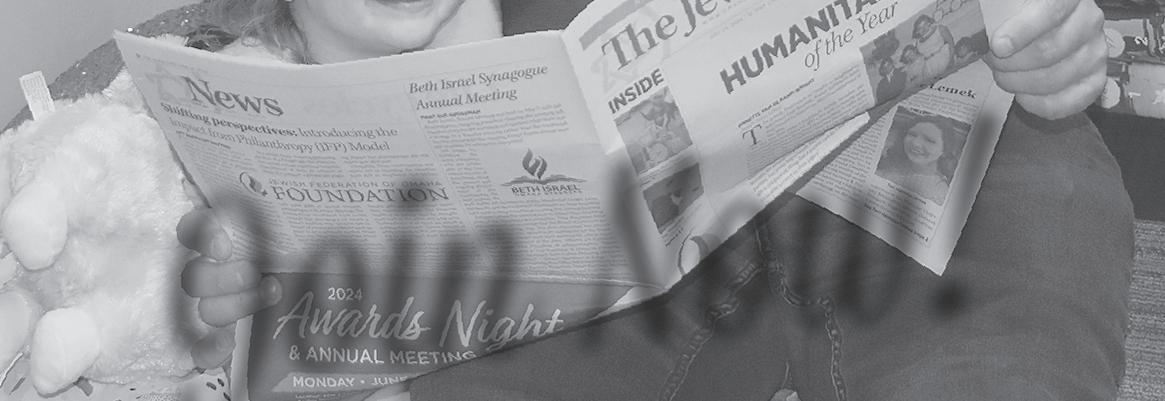
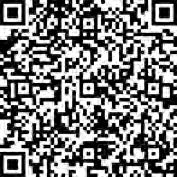
MARY SUE GROSSMAN
Eddie Cantor, born Isidore Itzkowitz, was an American comedian, actor, dancer, singer, songwriter, film producer, screenwriter and author. Cantor was one of the prominent entertainers of his era.
Harry S. Truman was the 33rd president of the United States and led the country through the final stages of World War II and through the early years of the Cold War, vigorously opposing Soviet expansionism in Europe and sending U.S. forces to turn back a communist invasion of South Korea.
Lewis Lichtenstein Strauss was an American government official, businessman, philanthropist, and naval officer. One of the original members of the United States Atomic Energy Commission, serving later as chair, he was a major figure in the development of nuclear weapons after World War II, nuclear energy policy, and nuclear power in the United States.
What possibly is the connection of these famous American men with Beth Israel Synagogue in Omaha, Nebraska?
The connection was made in the 1950’s when each was the recipient of the Beth Israel Synagogue Humanitarian Award. The award was presented to individuals who were champions for Israel and the Jewish people. The citation dinners, held at Beth Israel’s original building at 1502 N. 52 Street, were attended by over 700 people, drawing from the entire Omaha community. In addition to coverage in the Jewish Press, articles were published in the Omaha World Herald and got radio and television coverage. Framed pictures and mementos from the dinners can be seen today at Beth Israel.
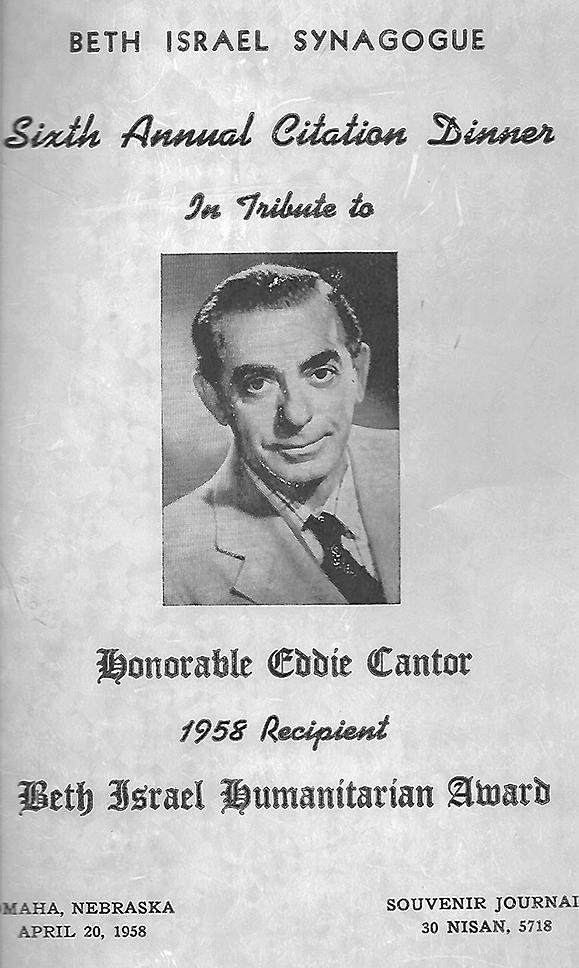
Hinky Dinky Food Stores, Aaron Ferer & Sons, City Glass, Diamond’s Kosher Meats & Delicatessen, H&Z Vending, Zoob’s, N Pitlor & Son, Omaha Kosher Meat Market, Slosburg Realty, Capitol Liquors, Canfield Army Surplus, Sol Lewis, Shukert’s Kosher Market, and Nogg Brothers Paper Company are just a few included in the thick booklets.
Those long-ago Humanitarian dinners are just a few of the events that will be remembered on Sunday, Sept. 15, 2024, at Milestones – A Celebration of Beth Israel. Honorary chairs for the event include Joe and Maxine Kirshenbaum, Paul and Susie Shyken, David and Janet Kohll, and Donald Gerber. From the synagogue’s beginnings and the building of the shul on 52nd Street, Beth Israel’s long history of strong involvement in the Jewish and general community, changes in rabbinic leadership, the move to Pacific Street, and the evolution in education and programming will be highlighted.
In honor of Beth Israel’s 75year history, special recognition will be given to two leaders who were instrumental to the synagogue’s strength and future. The Beth Israel Chapel/Beit Midrash will be dedicated to long-time leaders, Rabbi Isaac Nadoff and Cantor Leo Fettman, both of blessed memory. Rabbi Nadoff and Cantor Fettman’s names were synonymous with Beth Israel. Rabbi Nadoff was with Beth Israel for 25 years and Cantor Fettman for 18 years. These Jewish leaders touched the lives of thousands of individuals, leaving their footprint at Beth Israel, Omaha, and beyond.

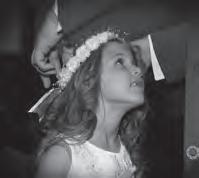
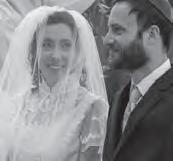
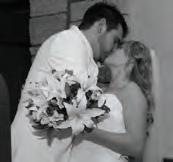
The Synagogue Youth Organization, SYO, was responsible for coat check duties. One of those members was Paul “Paysie” Shyken. “I was a SYO member and since we ‘worked’ the event, we were able to attend the dinners. All the dinners were held at the synagogue and the social hall was absolutely packed with over 700 people in attendance” shared Paysie. “In addition to Eddie Cantor, Harry Truman, and Lewis Strauss, other honorees included Cantor Moshe Koussevitsky, George Jessel, Irene Dunn, and Charles Mayo.” He also shared he remembers being told that when Maury Katzman, the chair for Truman dinner, asked President Truman about his honorarium, Mr. Truman requested that rather than a personal payment, that the synagogue make a donation to Truman’s favorite charity. “That act made such an impression on me, and I have remembered it often over the years,” concluded Paysie. “It truly showed the character of Mr. Truman, who faced so many challenges during his presidency.”
The ad books from these events read as a “who’s who” of Omaha Jewish business and highlighted the wide variety of products and services available. “Sonny” Gerber Auto Sales, Greenberg Insurance Agency, Hoberman Plumbing Co, Weiner Tire & Supply Co, Micklin Lumber Company, Omaha Compound Company, Louis Market, Milder Oil Company, Borsheim’s Fine Jewelry, Julius Hornstein and His Orchestra,
Another highlight of the dinner will be the presentation of the Beth Israel Synagogue Lifetime Achievement Award to Nancy Mattly. Nancy, who retired last year after working as Beth Israel’s caterer for over 30 years, provided delicious meals for kiddushes, Shabbat dinners, holiday lunches and dinners, and many special events plus being a wonderful friend to the congregation.
Individual dinner tickets are $118 with Patron tickets pricing of $136. Honor Scroll Donor levels, beginning with the $1,200 Pearl Level, which includes two seats, up to the $10,000 Sapphire level with 16 seats, are also available. A donation of $36 will provide inclusion on the “Mazel Tov, Beth Israel” page in the program. Business, organization, and individual ads are also available. Invitations will be mailed later this month with a reservation deadline of Aug. 26
The Milestones Committee members ask that people share their pictures and memories to further enhance the evening. Call the synagogue office at 402.556.6288 to connect with any committee member. Members include Howard Kutler, Bruce Kutler, Helene Shrago, Bette Kozlen, Ron Giller, Nancy Wolf, Sarah Abrahamson, Karen Cohen, Rabbi Mordechai Geiger, and Mary Sue Grossman. Additionally, to receive Beth Israel’s weekly email and stay up to date on all synagogue happenings, please call the office or email a request to bethisrael@ortho doxomaha.org
ANDREW SILOW-CARROLL AND CURT SCHLEIER
JTA Ruth Westheimer, the diminutive Holocaust survivor and Israeli military veteran who charmed and educated millions of listeners as the taboo-breaking radio sex therapist “Dr. Ruth,” died July 12.
Karola Ruth Siegel was born in Germany in 1928, the only daughter of Orthodox Jews. She was 10 years old the last time she saw her father — from her apartment window as he was arrested by Nazis. It was November 1938, the day after Kristallnacht, and his detention was a clear portent of what awaited
the country’s Jews. Shortly thereafter, her mother arranged for her to leave Germany as a member of a 300-strong Kindertransport. She never saw her parents again, and believes they perished at Auschwitz. At war’s end, she immigrated to thenPalestine, lived on a kibbutz and joined the Haganah, the precursor to the Israel Defense Forces. Westheimer trained as a scout — and also a sniper. She never shot anyone, but was severely wounded by an artillery shell during the War for Independence in 1948. She is survived by her son, Joel Westheimer; her daughter, Miriam Westheimer; and four grandchildren. Read more at www.omahajewishpress.com.






KELLAH HOME CARE
402-706-6894 www.kellahhomecare.com
If you experience antisemitism, there are ways to report an incident or hate crime:
IF THIS IS AN EMERGENCY, MOVE TO A SAFE AREA AND DIAL 9-1-1
CALL the JFO’s Safety and Security Team 402-334-6446
EMAIL JCRCreporting@jewishomaha.org
SCAN the QR code below to fill out the Incident Reporting Form
ZEV STUB
Early in her senior year in high school in Washington D.C., Elie Ravitz-Basser realized that the Israel-Gaza war would upend her college plans.
“I applied to four universities in the United States early in the fall, but everything changed after October 7,” she said. “At that point, I decided to attend college only in Israel, surrounded by people who share my Jewish values.”
Ravitz-Basser is set to start her bachelor’s degree this fall in Jerusalem, pursuing a double major in English and Liberal Arts at Hebrew University’s Rothberg International School. She’ll be part of a brand-new, three-year undergraduate degree program, offered in English for the first time at Hebrew University.
“This is a unique opportunity to study in Jerusalem and immerse myself in the Israeli culture,” RavitzBasser said. “I’m excited about the classes I’ll be taking and I feel a deep connection to my great-grandparents, who came to Israel from Poland in the 1920s with the vision of reestablishing their homeland.”
Ravitz-Basser is among many recent high school graduates who have reconsidered their college plans in light of the anti-Israel protests that swept across U.S. campuses this year. For her, the breaking point came during the violent protests and encampments that spread from coast to coast this spring, many of which were seen as not just antiZionist but antisemitic.
Additionally, they have the option to take Hebrew classes to further enhance their language proficiency.
The tuition cost is one of the program’s biggest selling points. The undergraduate program costs $15,000 per year — a fraction of the price of most US colleges. Master’s degrees typically range from $5,000 to $10,000 per year.
After securing scholarships for US students, Ravitz-Basser expects to pay about $7,000 for her tuition in the program.
“Many of the US colleges I applied to were around $85,000 a year,” she said. “That’s amazing.”
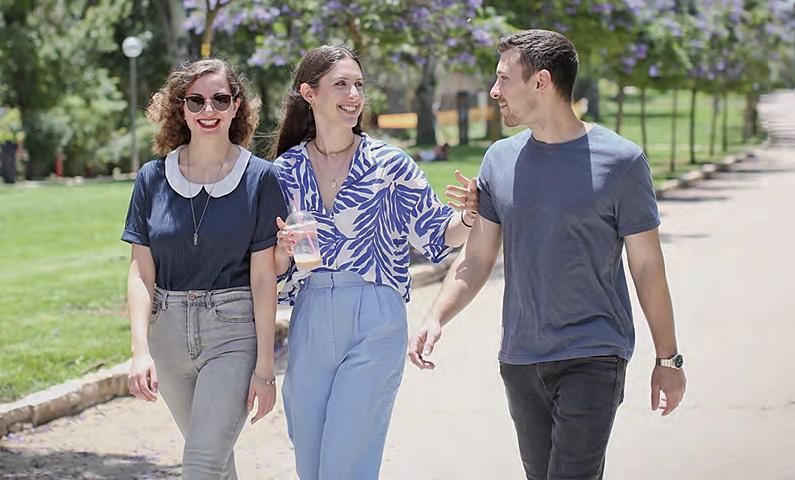
“That made it clear that I wouldn’t attend any college where I couldn’t feel safe without hiding my identity,” she said.
We work directly with law enforcement, Secure Communities Network, and the Anti-Defamation League.
If you see something, say something.

Hebrew University is not just a top-tier Israeli academic institution but also consistently ranks among the top 100 universities in the world. As it prepares to celebrate its 100th anniversary next year, the university has long offered a wide variety of programs in English for international students, including semester- and year-long programs for undergraduates as well as about 40 different master’s programs.
However, the new three-year undergraduate program in English marks the first time overseas students can complete an entire BA degree at the Jerusalem institution.
“The Rothberg International School has been developing this program for a few years,” said Naama Oryan, director of Hebrew University’s International Marketing Division. “Our original goal, which remains unchanged, was to offer a toptier academic program that celebrates the diversity of Jerusalem and Israel. Students now have the option of studying for a BA in English at HUJI. We will support them and make HUJI their home away from home while they’re here.”
Degree tracks are available in English, Business, and Liberal Arts, and all undergraduate students are required to pursue a double major.
“We offer it this way to encourage our students to engage in multidisciplinary learning,” Oryan said.
About 25-30 students are expected in the first year, primarily from North America but also from Japan, India, France and Germany. Additionally, some new immigrants to Israel who prefer to take classes in English will join. Classes begin in November, right after the Jewish holiday season.
Unlike other programs, students have the option to transfer their credits from the English program to the university’s regular Hebrew tracks in their second year, allowing them to better integrate Hebrew classes as their language skills improve.
Continued from page 4 staff to help.” These efforts, playing out in Borneo and Melbourne, are the subject of a story in Melbourne Australia’s Herald Sun titled They Are My Brothers’ Keepers Returning to the realm of humans, we discover that overcoming adversity is often the stimulus for positive attitudes and actions toward others. Thus, we read (in USA Today) of a basketball player who had to overcome considerable personal tragedy as he grew up. Now a leader, he sports a tattoo inscribed on his forearm with the letters BFSG. He offers this explication: “What the letters stand for is private and sacred.” But he sums up their significance this way: “I am my brother’s keeper.” Alas, “I am my brother’s keeper” does not always equate
These scholarships are made possible in part through American Friends of the Hebrew University (AFHU), the university’s American fundraising and promotional affiliate, which raises an average of $60 million annually to support Hebrew University. AFHU operates six offices across the United States and promotes the university through donor events and public relations efforts.
Hebrew University accommodates a diverse student body of 25,000 across six campuses in Israel, including three in Jerusalem and one in Rechovot. Approximately 10% of its students hail from overseas, representing over 90 countries worldwide.
Beyond academics, campus life at Hebrew University offers robust student support services and a wide range of extracurricular activities, from yoga classes and Shabbat programs to parties and Jewish learning opportunities. “Our office of student life has significantly expanded its services in recent years, now providing 24/7 support for nearly all student needs to ensure they feel cared for and at home” Oryan said.
The university campus serves as a vibrant hub where students encounter Israel’s diverse population, encompassing Jews, Muslims, Christians, and Druze. Despite political tensions, relationships between Jewish and Arab students have remained peaceful throughout the war. Approximately 20% of the university’s student body consists of Christian and Muslim Arabs, reflecting their proportional representation in Israel’s population.
Applications for the upcoming school year are still being accepted, and remaining spots will be filled on a first-come, firstserved basis. Interested students can find more information or attend an online open-house event at www.studyinjerusalem.com.
This article was sponsored by and produced in collaboration with American Friends of the Hebrew University, a national nonprofit that connects the passions of Americans to talent at the Hebrew University of Jerusalem. This story was produced by JTA’s native content team.
with positive sentiments. As reported again in the Herald Sun, the same words are part of the insignia of the Bandidos, an outlaw motorcycle gang. Their definitions of “brother” and “keeper” are decidedly less inclusive than others, as can also be seen in another of their slogans: “Real power can’t be given—it must be taken.”
As always, I want to conclude on a higher note: in this case, a story from Glasgow’s Herald with the title ‘Going Green’ Is a Moral Duty for Scots. A Scottish religious leader elaborates on this theme in these words: “There’s a moral and ethical argument to [environmental issues]. It’s absolutely basic to the teachings of the Bible. Am I my brother’s keeper? Yes, you are your brother’s keeper.” I couldn’t have said it better myself.

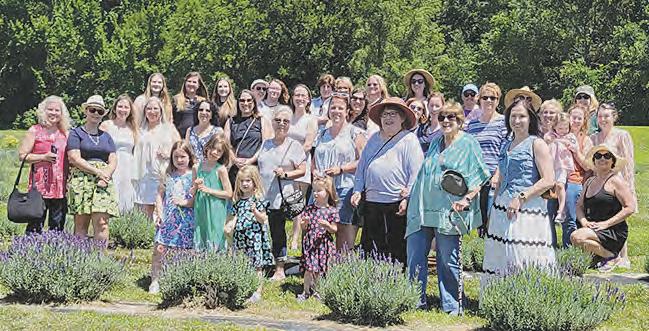
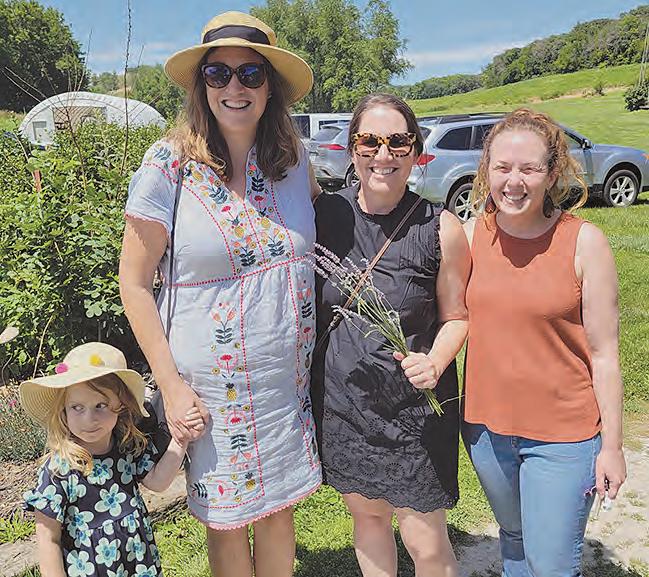
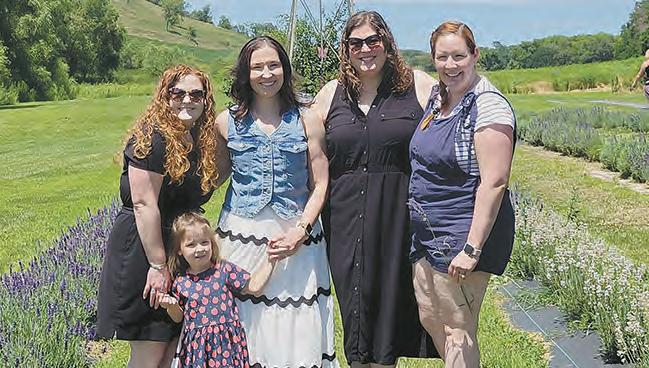

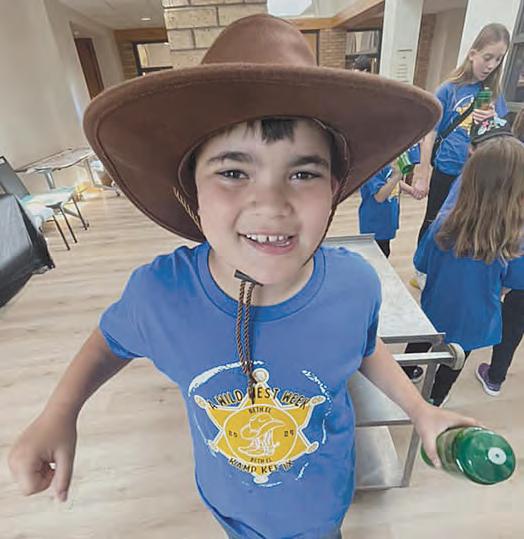
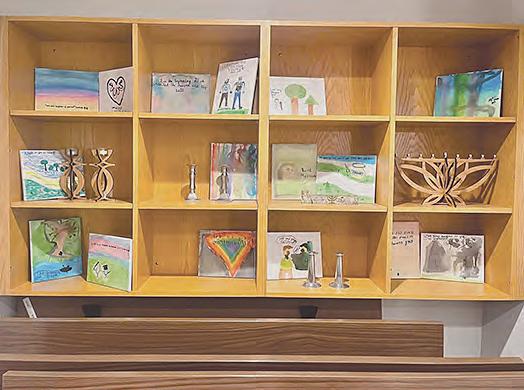
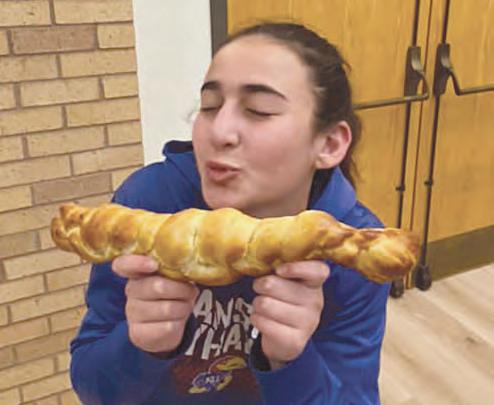
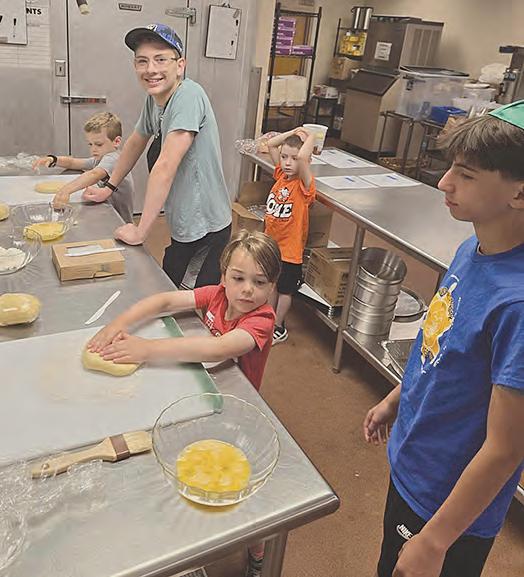


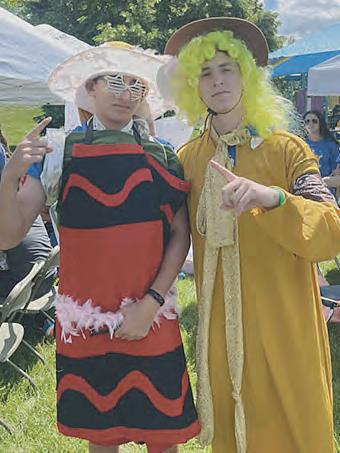

(Founded in 1920)
David Finkelstein
President
Annette van de Kamp-Wright
Editor
Richard Busse
Creative Director
Howard Kutler
Advertising Executive
Lori Kooper-Schwarz
Assistant Editor
Melanie Schwarz
Intern
Sam Kricsfeld
Digital support
Mary Bachteler
Accounting
Jewish Press Board
David Finkelstein, President; Margie Gutnik, Ex-Officio; Helen Epstein, Andrea Erlich, Ally Freeman, Dana Gonzales, Mary Sue Grossman, Hailey Krueger, Chuck Lucoff, Larry Ring, Melissa Schrago, Suzy Sheldon and Stewart Winograd.
The mission of the Jewish Federation of Omaha is to build and sustain a strong and vibrant Omaha Jewish Community and to support Jews in Israel and around the world. Agencies of the JFO are: Institute for Holocaust Education, Jewish Community Relations Council, Jewish Community Center, Jewish Social Services, Nebraska Jewish Historical Society and the Jewish Press Guidelines and highlights of the Jewish Press, including front page stories and announcements, can be found online at: www.jewishomaha.org; click on ‘Jewish Press.’ Editorials express the view of the writer and are not necessarily representative of the views of the Jewish Press Board of Directors, the Jewish Federation of Omaha Board of Directors, or the Omaha Jewish community as a whole. The Jewish Press reserves the right to edit signed letters and articles for space and content. The Jewish Press is not responsible for the Kashrut of any product or establishment.
Editorial
The Jewish Press is an agency of the Jewish Federation of Omaha. Deadline for copy, ads and photos is: Thursday, 9 a.m., eight days prior to publication. E-mail editorial material and photos to: avandekamp@jewishomaha.org ; send ads (in TIF or PDF format) to: rbusse@jewishomaha.org
Letters to the Editor Guidelines
The Jewish Press welcomes Letters to the Editor. They may be sent via regular mail to: The Jewish Press, 333 So. 132 St., Omaha, NE 68154; via fax: 1.402.334.5422 or via e-mail to the Editor at: avandekamp@jewishomaha.org.
Letters should be no longer than 250 words and must be single-spaced typed, not hand-written. Published letters should be confined to opinions and comments on articles or events. News items should not be submitted and printed as a “Letter to the Editor.”
The Editor may edit letters for content and space restrictions. Letters may be published without giving an opposing view. Information shall be verified before printing. All letters must be signed by the writer. The Jewish Press will not publish letters that appear to be part of an organized campaign, nor letters copied from the Internet. No letters should be published from candidates running for office, but others may write on their behalf.
Letters of thanks should be confined to commending an institution for a program, project or event, rather than personally thanking paid staff, unless the writer chooses to turn the “Letter to the Editor” into a paid personal ad or a news article about the event, project or program which the professional staff supervised. For information, contact Annette van de Kamp-Wright, Jewish Press Editor, 402.334.6450.
Postal
The Jewish Press (USPS 275620) is published weekly (except for the first week of January and July) on Friday for $40 per calendar year U.S.; $80 foreign, by the Jewish Federation of Omaha. Phone: 402.334.6448; FAX: 402.334.5422.
Periodical postage paid at Omaha, NE. POSTMASTER: Send address changes to: The Jewish Press, 333 So. 132 St., Omaha, NE 68154-2198 or email to: jpress@jewishomaha.org
ANNETTE VAN DE KAMP-WRIGHT
Jewish Press Editor
On July 9, one of the Anne Frank statues in Amsterdam (there are several) was spray painted with the word ‘Gaza’. It wasn’t the first time, as Andrew Lapin wrote in a recent article:
“In November, a pro-Israel Anne Frank mural in Milan, Italy, depicting the Jewish Holocaust victim holding an Israeli flag, was covered with graffiti reading “Gaza Free.” Around the same time, a Holocaust memorial boulder in Copenhagen, Denmark was covered with graffiti and a nearby amphitheater was painted with an image of the Palestinian flag and the words “Free Gaza.” Some Holocaust sites in the U.S. have also been targets of pro-Palestinian activists. Earlier this month the phrase “Genocide in Gaza” appeared written in pen on Seattle’s Holocaust Museum; police determined the act was not a hate crime.”(JTA)
Why are people still confused about what’s going on? This is not about Gaza or about Palestinians. None of these acts alleviate their suffering under Hamas, and it’s not a sign of protest. In fact, I suggest we stop using the word ‘protesters’ altogether. It’s not protest. What it is, is unadulterated hate, it’s antisemites making themselves known, nothing else.
Now that we have that out of the way, is there a way to move forward? I am not so sure we can. Let’s face it, ever since Oct. 7 those of us in the diaspora have been stuck in some sort of limbo, some bizarre stand-off between ‘us’ and ‘them.’ Besides fighting about it on social media (I, too, delete
Editorials express the view of the writer and are not necessarily representative of the views of the Jewish Press Board of Directors, the Jewish Federation of Omaha Board of Directors, or the Omaha Jewish community as a whole.
every follower who sports a Palestinian flag or watermelon emoji) and commiserating in our selfchosen echo chambers, what are we actually able to do?
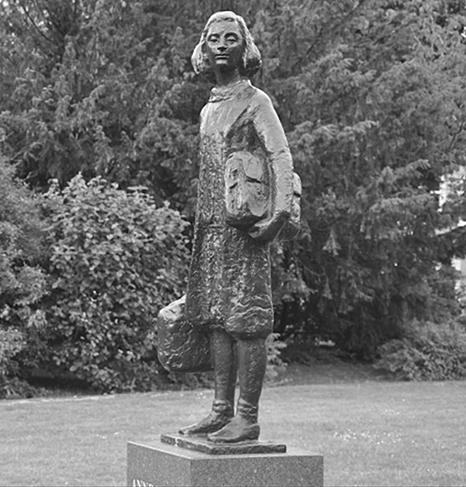
I want to answer “I don’t know” and leave it at that. But I can’t, and neither can you. We have children to raise, a community to take care of and a future to consider—a future that is at best uncertain and at worst under real threat. So, I’m forcing myself to come up with an answer, and all I can think is: we show up.
We show up when friends and family need us, and that means we do so now, too. We show up to synagogue and to youth groups. We show up to work and to college campuses and to lunch with our friends; we show up to events and listen to speakers, and we attend webinars and take our kids to Jewish summer camps. We show up for Shabbat. We show up for prayers and shivas, for b’nai Mitzvah and for funerals and pride parades and farbrengens.
What we do not do is hide.
Too many stories have been making the rounds about Jews being scared to wear their Judaism on their sleeve. Kippot, necklaces, outward signs of who we are on the inside, they have become something we have to think about. And I get it: living in Omaha, Nebraska, that choice is a little less scary than in many other places.
But remember: Being Jewish is amazing. It’s a source of joy, it’s fantastic and magical and it is everything. It is our superpower, and why on earth would we ever give that up? The answer is not to become less. It is to become more.
I spent my childhood listening to stories about family members hiding. Like so many of you I have a shortlist in my head of what to pack and where to go just in case.
But this is not the 1930s and we don’t live under in Nazi times, even if it sometimes feels like it. We are still free, free to show up, free to practice, and free to be ourselves, unapologetically Jewish. And that, in spite of all the hate out there, is forever a source of joy.
When the political stakes are high, Judaism doesn’t place all the responsibility on a single charismatic leader
RABBI JUSTUS BAIRD
This article initially appeared in My Jewish Learning’s Shabbat newsletter Recharge.
Growing up in suburban Houston in the 1970s and 1980s, I never heard serious conversations about democracy. I knew the United States was democratic, but that was just the water fish swim in, something all around us that we take for granted.
But as Americans celebrated Independence Day this week, democracy is top of mind for many of them, and especially American Jews. In the United States, we’re facing a looming presidential election amid contested interpretations of the last one and ongoing debates about voting access. In Israel, there are high levels of mistrust in elected officials after more than a year of massive weekly protests — first over the judicial overhaul and then about hostages and the current government.
This week’s Torah portion gave me another reason to reflect on democracy. A year after escaping Egypt, the 12 tribes are wandering in the desert when their bitter complaints evolve into political rebellion. And not just one rebellion, but three of them: one led by Korach, another by Datan and Aviram, and a third by 250 chieftains.
It’s that last group, the 250 chieftains, that caught my eye. Their complaint against Moses is that the entire community is holy. How then can Moses put himself above everyone else? Everyone should have a say in leading the community! To 21st-century ears, this argument by the chieftains (who, the Torah tells us, were chosen in the assembly) sounds like a passionate call for democracy.
My work at the Shalom Hartman Institute brings me each summer to Jerusalem, from where I am writing now. In Israel, conversations are not just about democracy, but specifically on the relationship between Judaism and democracy. Some Israelis advocate for a Jewish theocracy governed by Jewish law. Some ask how a state can be Jewish while also serving all of its citizens, including the 22% of citizens who are not Jewish. Some celebrate Jewish control over limited areas of government (Shabbat, kashrut, personal status like marriage
and conversion). And some want complete separation of Judaism and state.
Too often, these debates are flattened into the question of whether Judaism and democracy are compatible, or whether having a state religion is compatible with democracy. But there are plenty of democratic nations with a Christian state religion — the United Kingdom, Greece and Costa Rica among them. So there is little reason to question whether Israel’s democracy can function with a state religion. And clearly Judaism and democracy are at least somewhat compatible, since the Jewish state’s parliamentary democracy has been stable for more than 75 years.
So rather than ask whether they are compatible, it would be more interesting to ask: How might Judaism influence and shape democracy, either in Israel or in the U.S.?
wrath. As readers, we are meant to interpret their acts as unhelpful uprisings against authority.
But there is another story from the period with a different message. When the Israelites’ complaining reaches a fever pitch, Moses throws his hands up and tells God he can’t take it anymore. God’s response is to instruct Moses to gather 70 leaders who “shall share the burden of the people with you.”

We know that Judaism shaped the early development of democratic ideas. Historians have argued that democracies draw many of their distinctive features from the Jewish tradition. One scholar’s list included consent of the governed, the presumption of innocence, the exclusion of self-incrimination from court proceedings, and a commitment to the sanctity of life and the inestimable preciousness of each unique individual.
Can Jewish tradition still offer insight today when democracies are under threat?
The section of the Torah we have recently read offers some insight. The Israelites have only recently escaped from slavery in Egypt. Under Pharaoh, their ability to self-organize was extremely limited. Now, as an emancipated community, they must figure out how to govern themselves. The three rebellions can be understood as part of a trial-and-error process on the path toward determining a form of governance. Moses and God have no compassion for the rebellions, and the organizers of the rebellion receive only divine
This is a core democratic move: When the stakes are high, and crisis is imminent, we do not put all of the burden on a single charismatic leader. Instead, individuals are selected to share the burden of the people.
What is the difference between the 70 elders and the 250 chieftains? Perhaps it was their tone and intent: The chieftains wanted to replace Moses’ leadership, while the elders said, “We’re here to help carry the burden.” For those of us who are concerned about the future of democracy, whether in the U.S. or in Israel, this is our only real option: to get involved and take on some of the burden of the people. If you aren’t already doing so, perhaps this is your moment to carve out a portion of your time and energy and dedicate it to the democratic process. Rabbi Justus Baird is Senior Vice President, National Programs at the Shalom Hartman Institute
America.
The views and opinions expressed in this article are those of the author and do not necessarily reflect the views of JTA or its parent company, 70 Faces Media.
STOCKBRIDGE, Massachusetts
There’s a delightful “what if” moment at the start of What, Me Worry? The Art and Humor of MAD Magazine, a new exhibit at the Norman Rockwell Museum here.
In 1964, MAD commissioned Rockwell himself to paint a portrait of Alfred E. Neuman, the humor magazine’s gaptoothed mascot, as he might have looked in real life. Correspondence featured in the exhibit suggests that Rockwell — grand master of gentle, folksy, even cornball Americana — was close to signing on with what MAD called its “usual gang of idiots”: goofball masters of sophomoric, anti-establishment satire.
In the end, Rockwell turned down the offer. “I think I better back out of this one,” he wrote. “After talking with you, and my wife who has a lot more sense than I have, I feel that making a more realistic definitive portrait just wouldn’t do. I hate to be a quitter, but I’m afraid we would all get in a mess.”
We didn’t lose just a marriage of comic sensibilities, but of ethnic ones: the “goyish” and the Jewish, mid-20th century style. Rockwell’s world is full of farmers and fishermen, country folk and small-town shopkeepers. MAD seemed to have been born on the Lower East Side, come of age in the Bronx, and found its voice somewhere between Brooklyn and Broadway.
And as the exhibit makes clear, that impression is not far off. The MAD team in its heyday included founders William Gaines and Harvey Kurtzman, editor Al Feldstein, and artists and writers from Mort Drucker, Al Jaffee and Dave Berg to Larry Siegel, Stan Hart and, more recently, Drew Friedman, all Jews (and all men, I know). Its pages dripped with Yiddishisms, some real (shmuck!) and some imagined (furshlugginer!).
Nathan Abrams, in an article on MAD’s Jewish sensibility, argues that in the 1950s and ’60s the magazine “marinated in the same urban Jewish culture” that produced the New York Intellectuals, the mostly Jewish, mostly male writers and critics who dominated high-brow discourse from the 1930s through the 1960s. And its contributors had the same concerns, writes Abrams: “suburbia, psychoanalysis, existentialism, Freudianism, intellectual pretension, bohemianism, technology, disarmament, and containment.”
This Jewish sensibility abounds in the What, Me Worry? exhibit (whose name comes from Neuman’s catch-phrase). In a parody of High Noon from an early issue, a cowboy sings, “Do not forsake me oh-mah-dollink” in Yiddish dialect. In a later Dick Tracy lampoon, Al Pacino’s character, Big Boy in the original movie, becomes Big Goy
A parody of Funny Lady, the 1975 sequel to Funny Girl,” mocks Barbra Streisand’s take on Fanny Brice’s put-on Yiddish accent. “With that ‘Jewish’ routine, I think she’s killing Vaudeville,” says one audience-member. “Yeah,” says another, “but she’s adding new life to Anti-Semitism!”
The apotheosis of this deeply ethnic, self-mocking and even self-protective Jewish voice is found in the 1973 parody of Fiddler on the Roof. Titled Antenna on the Roof, it’s represented in the exhibit by the original cover painting of Neuman as the fiddler. Drucker and writer Frank Jacobs set the musical in a tinseled, clearly Jewish suburb, and changed the Sholem Aleichem adaptation into an angry indictment of Jewish assimilation.

“Now that we’ve seen the Mess you’ve made,” the villagers of Anatevka sing to a cast of nouveau riche Jews, “We’re afraid God wants back his melting pot!” It’s an entire Philip Roth novel in a seven-page comic.
In its heyday (roughly, IMHO, from the late 1950s to the mid1970s), MAD also dissected and subverted consumer and pop culture with as much precision, and more impact, than thought journals like Commentary and Dissent. It taught young readers like me to be wary of corporate America, with parodies that undermined the cynical claims of advertisers. MAD also deconstructed TV shows and feature films, pointing out the cliches and conventions of popular culture before anyone knew what deconstruction was.
An accompanying exhibit, Norman Rockwell: Illustrating Humor, includes 20 examples of the charming, slice-of-life gags the artist created for middle-brow magazines like The Satur-
day Evening Post and McCall’s: frantic, half-dressed boys fleeing an off limits swimming hole, an unhappy babysitter pushing a carriage while his buddies head off to play baseball.
But if MAD and Rockwell appear to spring from different comic universes, the exhibit demonstrates what they had in common. After leaving The Post in 1963 after decades as its cover artist, Rockwell felt free to embark on a series of paintings depicting the political struggles of the day, including civil rights and the displacement of Native Americans.
Similarly, the exhibit explores how political MAD could be, noting that “beyond the laughs... MAD’s focus on national events and figures had great impact, raising public awareness during the mid-twentieth century when mainstream media was deferential to authority.” Equal opportunity offenders, MAD’s crew sharply ridiculed Richard Nixon, George McGovern and Henry Kissinger.
MAD stopped publishing fresh material monthly in 2019. You leave the exhibit wondering what it might have done with the two unpopular seniors running for president at the moment — although it’s hard to lampoon a campaign that already seems a parody of itself.
MAD and Rockwell also shared an obsessive attention to craft. Paintings by MAD cover artists like Norman Mingo and Kelly Freas demonstrate a mastery of technique that compares favorably to Rockwell’s work, which hangs nearby. Richard Williams’ parody of the famous Triple Self-Portrait by Rockwell wouldn’t be as funny if it weren’t as beautifully painted as the original.
I’ve been spending a lot of time in the Berkshires, where Rockwell lived and from which he literally drew his inspiration. The recent Jewish influence on this old bastion of Yankee New England can be seen everywhere: in the big Chabad house under construction in Lenox, in the Jewish film and lecture series that takes place throughout the summer, in the Judaica sold in the craft shops.
The MAD exhibit at the Norman Rockwell Museum suggests the merger that almost was — between gentile and Jewish, nostalgic and subversive, rural and urban, mild and meshuggeneh. I think Norman Rockwell and William Gaines would both have approved.
Anrew Silow-Carroll is editor at large of the New York Jewish Week and managing editor for Ideas for the Jewish Telegraphic Agency.
The views and opinions expressed in this article are those of the author and do not necessarily reflect the views of JTA or its parent company, 70 Faces Media.
Reform movement’s decision to admit intermarried rabbis is good.
I’ve been advocating for 15 years for Hebrew Union College to admit rabbinical students in interfaith relationships. As the founder of organizations that advocate for interfaith families’ Jewish engagement, I heard the voices of interfaith couples who wanted to feel that they could belong in Jewish settings and were discouraged by policies and statements that demeaned their relationships.
I have shared papers with the administrators stating their case and privately lobbied HUC faculty members and administrators to adopt a policy based on the inclusion that liberal Judaism needs to thrive in a future that is already here.

HUC’s long-awaited decision to do so is momentous. HUC’s president, Andrew Rehfeld, should be congratulated for stewarding a policy change he described as “not easy,” met by largely generational opposition.
While a major step forward, the messaging surrounding the decision does not express the fully inclusive attitude towards interfaith marriage that would encourage more interfaith families to engage Jewishly, in turn enabling liberal Judaism to thrive in the future.
HUC’s decision acknowledges arguments that intermarried rabbis would be particularly inspiring role models to the interfaith couples whom they served, and that HUC’s policy discriminated against any group with higher-than-average rates of interfaith marriage (including Jews of color, LGBTQ Jews and children of intermarried parents). What’s more, the policy restricted the pool of eligible students at a time of shrinking enrollment.
In the meantime, other seminaries were changing their polices: The Reconstructionist movement revoked its ban on rabbinic students who are intermarried or in committed relationships in 2015; Hebrew College welcomed students in interfaith relationships in 2023.
In explaining the policy change, HUC missed a unique oppor-
tunity to express a positive and fully inclusive attitude towards interfaith marriage. The now-revoked policy followed a 2001 Central Conference of American Rabbis responsum (rabbinic decision) that says “we do not condone interfaith marriage” and that “the ideal to which we rabbis strive” is in-marriage. This amounts to an official statement by the association of Reform rabbis that interfaith marriage is disapproved and beloved partners from different faith backgrounds are undesirable. Why would interfaith couples want to be part of a community that views their marriage and one of the partners so negatively?
Instead of explicitly countering that viewpoint, HUC’s main stated reason for the change is that “many Jewish individuals with non-Jewish partners maintain a Jewish family and home in which Judaism exclusively is practiced and are deeply engaged with Jewish communal life and peoplehood.” That’s similar to the way the Reconstructionists explained their decision back in 2015, saying that Jews with non-Jewish partners demonstrate commitment to Judaism in their communal, personal and family lives “every day in many Jewish communities.”
But the Reconstructionist explanation is different in two respects. The Reconstructionists went on to affirmatively say that the “issue of Jews intermarrying is no longer something we want to police; we want to welcome Jews and the people who love us to join us in the very difficult project of bringing meaning, justice, and hope into our world.” In contrast, Dr. Rehfeld was quoted by JTA as saying that “We’re not backing down from the statement that Jewish endogamy [in-marriage] is a value.”
More important, instead of being enthusiastic, the explanation takes a crabbed approach, adding language about “exclusively Jewish practice” such that it comes across as, “We’ll take you, but because we’re taking you we are adding requirements that you’ll have an exclusively Jewish home and raise exclusively Jewish children.”
The requirement of exclusivity, if it is enforced, will lead to all sorts of definitional problems. It’s not as simple as Rehfeld’s example of a couple going to shul on Saturday morning and celebrating mass on Sunday. As Katz Miller writes, parents can choose one formal religious affiliation for a child, but as “anyone who is part of an interfaith family can attest, you cannot erase the religion and culture of a parent, or extended family, from the child’s experience. They will attend a beloved grandparent’s funeral in another religious tradition, a cousin’s
baptism, an aunt’s wedding. These are intimate and formative experiences in the life of an interfaith child.”
When Hebrew College changed their policy, they didn’t say anything at all about interfaith marriage; they simply promulgated new standards for admission that did not refer to the previous ban. When I expressed disappointment at the silence, one faculty member told me that if they had had to say anything one way or the other about interfaith marriage, the policy change would never have been approved. So it may well be that HUC’s statements about in-marriage as a value, and exclusive Jewish practice, had to be made in order to get the necessary buy-in for the policy change.
But in the near term, when the liberal Jewish community is beset by challenges, and needs more young people who are highly likely to be in interfaith relationships to engage, it’s more important than ever to convey an inclusive attitude.
Rabbi Rick Jacobs, head of the Union for Reform Judaism, is quoted by JTA as saying, “Many of our best rabbis and cantors were raised in homes with only one formally Jewish parent. … Many of our temple lay leaders are married to people who are not formally Jewish.” The URJ could do much more to explicitly and affirmatively invite interfaith families to engage. And it’s past time for the CCAR to review and revoke its out-dated rulings like the responsum on intermarried rabbis, or its responsum that, despite the fact that the vast majority of Reform rabbis perform interfaith marriages, still officially opposes rabbis officiating at such weddings. A formal process could establish new official opinions; at the least, they could attach language to nolonger-binding opinions explaining that they are out of date and not aligned with the movement’s current policies.
The decisions of HUC and the other liberal seminaries provide hope that in the longer run, with more rabbis who are the children of interfaith parents, or who are in interfaith relationships themselves, liberal Judaism’s message will evolve so that all marriages are equally valued and that interfaith couples are invited to fully engage in Jewish life. Progress is happening, slowly but surely, and we can continue to do more to build that radically inclusive Jewish community.
Edmund C. Case is the founder of 18Doors (formerly InterfaithFamily), author of A New Theory of Interfaith Marriage, and advocate for interfaith families’ Jewish engagement.
B’NAI ISRAEL SYNAGOGUE
618 Mynster Street Council Bluffs, IA 51503-0766
712.322.4705 www.cblhs.org
BETH EL SYNAGOGUE
Member of United Synagogues of Conservative Judaism 14506 California Street Omaha, NE 68154-1980
402.492.8550 bethel-omaha.org
BETH ISRAEL
SYNAGOGUE
Member of Union of Orthodox Jewish Congregations of America 12604 Pacific Street Omaha, NE. 68154
402.556.6288 BethIsrael@OrthodoxOmaha.org
CHABAD HOUSE
An Affiliate of Chabad-Lubavitch 1866 South 120 Street Omaha, NE 68144-1646
402.330.1800 OChabad.com email: chabad@aol.com
LINCOLN JEWISH COMMUNITY:
B’NAI JESHURUN
South Street Temple
Union for Reform Judaism 2061 South 20th Street Lincoln, NE 68502-2797
402.435.8004 www.southstreettemple.org
OFFUTT AIR
FORCE BASE
Capehart Chapel 2500 Capehart Road Offutt AFB, NE 68123
402.294.6244 email: oafbjsll@icloud.com
TEMPLE ISRAEL
Union for Reform Judaism (URJ) 13111 Sterling Ridge Drive Omaha, NE 68144-1206
402.556.6536 templeisraelomaha.com
LINCOLN JEWISH COMMUNITY:
TIFERETH ISRAEL
Member of United Synagogue of Conservative Judaism 3219 Sheridan Boulevard Lincoln, NE 68502-5236 402.423.8569 tiferethisraellincoln.org
Monthly Speaker Series Service, Friday, Aug. 9, 7:30 p.m. with guest speaker. Our service leader is Larry Blass. Everyone is always welcome at B’nai Israel!
For information about our historic synagogue, please visit our website at www.cblhs.org or contact any of our other board members: Renee Corcoran, Scott Friedman, Rick Katelman, Janie Kulakofsky, Howard Kutler, Carole and Wayne Lainof, Ann Moshman, MaryBeth Muskin, Debbie Salomon and Sissy Silber. Handicap Accessible.
Services conducted by Rabbi Steven Abraham and Hazzan Michael Krausman.
IN-PERSON AND ZOOM MINYAN SCHEDULE:
Mornings on Sundays, 9 a.m.; Mondays and Thursdays, 7 a.m.; Evenings on Sunday-Thursday, 5:30 p.m.
FRIDAY: Kabbalat Shabbat 6 p.m. at Beth El & Live Stream.
SATURDAY: Shabbat Morning Service, 10 a.m. at Beth El & Live Stream; Havdalah 9:35 p.m. Zoom only.
SUNDAY: Morning Minyan, 9 a.m. Zoom Only.
TUESDAY: Board of Trustees Meeting, 7 p.m.
FRIDAY-July 26: Nebraska AIDS Project Lunch, 11:30 a.m.; Six String Shabbat 6 p.m. at Beth El & Live Stream. Bring a Dairy dinner to enjoy with your Beth El family after services.
SATURDAY-July 27: Shabbat Morning Service 10 a.m. at Beth El & Live Stream; Havdalah, 9:25 p.m. Zoom only.
Please visit bethel-omaha.org for additional information and service links.
FRIDAY: Nach Yomi, 6:45 a.m.; Shacharit, 7 a.m.; Camp JYE BI 2024, 9 a.m.; Mincha/Kabbalat Shabbat, 7 p.m.; Candlelighting, 8:35 p.m.
SATURDAY: Shabbat Kollel, 8:30 a.m.; Shacharit 9 a.m.; Tot Shabbat, 10:30 a.m.; Youth Class, 10:45 a.m.; Tehillim, 7:10 p.m. at the Zivs; Soulful Torah, 7:35 p.m. with Rabbi Geiger; Mincha 8:20 p.m.; Laws of Shabbos/Kids Activity, 8:50 p.m.; Havdalah, 9:41 p.m.
SUNDAY: Shacharit 9 a.m.; Kinyan 9:40 a.m.; Mincha/Ma’ariv, 8:30 p.m.
MONDAY: Nach Yomi, 6:45 a.m.; Shacharit, 7 a.m.; Camp JYE BI 2024, 9 a.m.; Mincha/Ma’ariv, 8:30 p.m.
TUESDAY: Nach Yomi, 6:45 a.m.; Shacharit, 7 a.m.; Camp JYE BI 2024, 9 a.m.; Kinyan 7:55 p.m.; Mincha/ Ma’ariv, 8:30 p.m.
WEDNESDAY: Nach Yomi, 6:45 a.m.; Shacharit, 7 a.m.; Camp JYE BI 2024, 9 a.m.; Board of Directors Meeting, 7 p.m.; Mincha/Ma’ariv, 8:30 p.m.
THURSDAY: Nach Yomi, 6:45 a.m.; Shacharit, 7 a.m.; Camp JYE BI 2024, 9 a.m.; Kinyan, 7:55 p.m.; Mincha/Ma’ariv, 8:30 p.m.; Parsha Class, 8:50 p.m.
FRIDAY-July 26: Nach Yomi, 6:45 a.m.; Shacharit, 7 a.m.; Camp JYE BI 2024, 9 a.m.; Mincha/Kabbalat Shabbat, 7 p.m.; Candlelighting, 8:29 p.m.
SATURDAY-July 20: Shabbat Kollel, 8:30 a.m.; Shacharit, 9 a.m.; Tot Shabbat, 10:30 a.m.; Youth Class 10:45 a.m.; Tehillim, 7:10 p.m. at the Zivs; Soulful Torah, 7:35 p.m. with Rabbi Geiger; Mincha 8:20 p.m.; Laws of Shabbos/Kids Activity, 8:50 p.m.; Havdalah, 9:33 p.m.
Please visit orthodoxomaha.org for additional information and Zoom service links.
All services are in-person. All classes are being offered in-person and via Zoom (ochabad.com/academy). For more information or to request help, please visit www.ochabad.com or call the office at 402.330.1800.
FRIDAY: Shacharit 8 a.m.; Inspirational Lechayim, 5:45 p.m. with Rabbi and friends: Ochabad.com/ Lechayim; Candlelighting, 8:34 p.m.
SATURDAY: Shacharit 9:30 a.m. followed by Kiddush and Cholent; Shabbat Ends, 9:40 p.m.
SUNDAY: Sunday Morning Wraps: Shacharit, 99:30 a.m., Video Presentation, 9:30 a.m. and Breakfast, 9:45 a.m.; Sunday Pod, 9-11 a.m. at Chabad with Montessori-inspired activities for kids newborn to five years old.
MONDAY: Shacharit 8 a.m.; Personal Parsha, 9:30 a.m.; Intermediate Biblical Hebrew Grammar, 10:30 a.m. with Prof. David Cohen; Parsha Reading, 6 p.m. with Prof. David Cohen.
TUESDAY: Shacharit, 8 a.m.; Intermediate Biblical Hebrew Grammar, 6 p.m. with Prof. David Cohen; Introductory Biblical Hebrew Grammar, 7 p.m. with Prof. David Cohen.
WEDNESDAY: Shacharit 8 a.m.; Mystical Thinking (Tanya), 9:30 a.m.; Introductory Biblical Hebrew Grammar, 10:30 a.m. with Prof. David Cohen; Parsha Reading, 11:30 a.m. with Prof. David Cohen.
THURSDAY: Shacharit, 8 a.m.; Introduction to Alaphabet, Vowels & Reading Hebrew, 10 a.m. with Prof. David Cohen; Advanced Biblical Hebrew Grammar, 11 a.m. with Prof. David Cohen; Talmud Study (Sanhedrin 34), noon; Introduction to Alphabet, Vowels & Reading Hebrew, 6 p.m. with Prof. David Cohen; Kitzur Shulchan Aruch (Code of Jewish Law) Class, 7 p.m.
FRIDAY-July 26: Shacharit 8 a.m.; Inspirational Lechayim, 5:45 p.m. with Rabbi and friends: Ochaba d.com/Lechayim; Candlelighting, 8:28 p.m.
SATURDAY-July 27: Shacharit 9:30 a.m. followed by Kiddush and Cholent; Shabbat Ends, 9:33 p.m.
LINCOLN JEWISH COMMUNITY: B’NAI JESHURUN & TIFERETH ISRAEL
Services facilitated by Rabbi Alex Felch. All services offered in-person with live-stream or teleconferencing options.
FRIDAY: Erev Shabbat Service with Rabbi Alex, 6:30-7:30 p.m. at SST; Shabbat Candlelighting, 8:41 p.m.
SATURDAY: Shabbat Morning Service, 9:30-11 a.m. at TI; No Torah Study; Potluck Dinner and Family Game Night, 6 p.m. at SST. Please bring a dish to share. All ages are welcome; Havdalah, 9:53 p.m.
SUNDAY: Men’s Bike/Coffee Group, 10:30 a.m. at The Mill on the Innovation Campus. For more information or questions please email Al Weiss at albertw801@gmail.com; Pickleball, 3-5 p.m. Anyone interested in playing or learning how to play can text Miriam at 402.470.2393. If there are enough interested people; we will play in the Social Hall at TI.
TUESDAY: Ladies' Lunch 1 p.m. at Gray Whale Ramen and Poke in Gateway Mall. For more information email Barbara Barron at oohhmmm.barb@ gmail.com.
FRIDAY-July 26: Erev Shabbat Service with Rabbi Alex, 6:30-7:30 p.m. at SST; Shabbat Candlelighting, 8:44 p.m.
SATURDAY-July 27: Shabbat Morning Service, 9:30-11 a.m. at TI; No Torah Study; Havdalah, 9:47 p.m.
FRIDAYS: Virtual Shabbat Service, 7:30 p.m. every first and third of the month at Capehart Chapel. Contact TSgt Jason Rife at OAFBJSLL@icloud.com for more information.
In-person and virtual services conducted by Rabbi Benjamin Sharff, Rabbi Deana Sussman Berezin, and Cantor Joanna Alexander
FRIDAY: Drop in Mah Jongg, 9-11 a.m. In-Person; Shabbat B’yachad Service, 6 p.m. In-Person & Zoom.
SATURDAY: Torah Study, 9:15 a.m. In-Person & Zoom; Shabbat Morning Service, 10:30 a.m. In-Person & Zoom.
SUNDAY: 2nd Sunday Breakfast, 9 a.m. at Stephen Center — In-Person.
MONDAY: Golf Outing, 6 p.m. In-Person.
TUESDAY: Adult Prayer Hebrew: Level Aleph, 6 p.m. In-Person.
WEDNESDAY: Yarn It, 9 a.m.; Jews and Comic (Books), 7 p.m. with Rabbi Sharff — In-Person & Zoom
THURSDAY: The Zohar: Thursday Morning Class, 11 a.m. with Rabbi Sharff and Rabbi Azriel — In-Person & Zoom.
FRIDAY-July 26: Drop in Mah Jongg, 9-11 a.m. InPerson; Shabbat B’yachad Service, 6 p.m. In-Person & Zoom.
SATURDAY-July 27: Torah Study 9:15 a.m. In-Person & Zoom; Shabbat Morning Service, 10:30 a.m. InPerson & Zoom. Please visit templeisraelomaha.com for additional information and Zoom service links.
ASAF ELIA-SHALEV
Social media giant Meta announced July 9 that it would ban derogatory or threatening references to “Zionists” in cases where the term is used to refer to Jews or Israelis rather than supporters of the movement to establish a Jewish polity.
The change means that posts on Facebook and Instagram will now be removed if moderators determine they use “antisemitic stereotypes, or threaten other types of harm through intimidation or violence directed against Jews or Israelis under the guise of attacking Zionists,” Meta said in a blog post.
Under Meta’s hate speech policy, users are not allowed to attack people on the basis of characteristics such as race, ethnicity, religious affiliation, disability and gender identity. Existing rules already prohibited using the word “Zionist” to refer to Jews or Israelis in two narrowly defined situations, including “where Zionists are compared to rats.”
Meta said that those rules didn’t account for the broad range of ways that people use the term.
Many Jewish groups have accused people of referring to “Zionists” rather than Jews as a cover for antisemitic speech, and some welcomed the announcement, with the World Jewish Congress referring to it as a “landmark decision” in a press release.
“Meta’s decision is a much-needed advancement in our ongoing fight against online antisemitism and
hatred,” said Ronald Lauder, WJC’s president. “By recognizing and addressing the misuse of the term ‘Zionist,’ Meta is taking a bold stand against those who seek to mask their hatred of Jews.”
Lauder also called on the owners of other social media platforms to follow suit.
Nearly 150 advocacy groups and experts provided input that led to Meta’s policy update, including CyberWell, a nonprofit that has been documenting the swell of online antisemitism and Holocaust denial since the start of the Hamas-Israel war. CyberWell, which is based in Tel Aviv, employs the International Holocaust Remembrance Alliance’s working definition of antisemitism, a popular and controversial document that categorizes some criticism of Israel as antisemitism.
Cohen Montemayor, said in a statement. Meta said it is still considering how its policies should address cases where users refer to Zionists
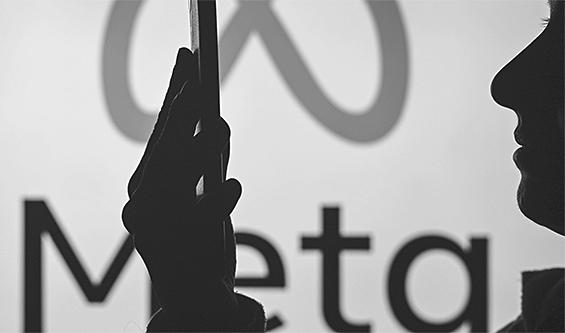
Credit: Credit: Artur Widak/NurPhoto
In a press release, CyberWell said it provided Meta with data demonstrating the widespread use of “Zionist” as a euphemism for Jews and Israelis, adding that it will track how well the company enforces its new policy.
“The use of the term ‘Zionist’ to spread antisemitic vitriol while avoiding detection has been used by radicals on the far left and extremists on the far right. Today, Meta has spoken through thoughtful action,” CyberWell’s executive director, Tal-Or
as criminals. In some contexts, it said, the use of “Zionists” and “criminals” could be shorthand for actions of the government or military and may represent legitimate speech regarding alleged war crimes. To get guidance, Meta is waiting on input from its Oversight Board, the independent body tasked with reviewing the company’s content moderation decisions and making policy recommendations. An Oversight Board spokesperson told the Jewish Telegraphic Agency that its guidance on the matter will be ready in September.
Argentina has officially designated Hamas an “international terrorist organization,” in a show of support for Israel that extends President Javier Milei’s shift away from the country’s pro-Palestinian past.
Milei’s office announced the move on Friday, citing Hamas’s attack on Israel on Oct. 7, the group’s links with Iran and a recent landmark ruling by Argentina’s judiciary that Iran was the architect of two deadly terror attacks in Buenos Aires in the 1990s.
The announcement attributed the declaration to Milei’s “unwavering commitment to recognizing terrorists for what they are.”
The declaration is largely symbolic but does mean that any assets tied to Hamas in Argentina can be frozen. The government agency that will now pursue Hamas’ assets previously identified and froze some assets tied to Hezbollah while the Argentinian government was on its way to declaring the Lebanon-based group a terror organization.
That declaration came just before the 25th anniversary of the AMIA Jewish community center bombing in Buenos Aires, which killed 85 people on July 18, 1994. The new announce-

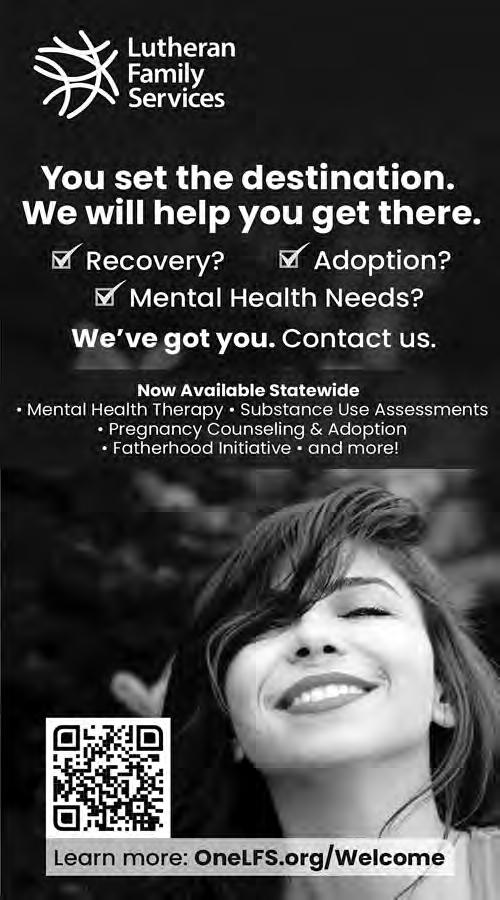
ment comes days before the 30th anniversary of the bombing, which Argentina attributes to Hezbollah and Iran. (Both groups have denied responsibility.)
Jewish groups including World Jewish Congress and the Latin American Jewish Congress are hosting an anti-terrorism summit in Buenos Aires on July 17. Milei — whose embrace of Israel aligns with both his right-wing politics and his personal affinity for Judaism — is expected to speak, along with U.S. antisemitism envoy Deborah Lipstadt and others.
Claire and Robert Osborne of Omaha, announce the June 21, 2024, birth of their daughter, Charlotte Mae.
She has a sister, Ella and a brother, William.
Grandparents are Sally Fredricks of Omaha and late Terry Fredricks, Roger and Pam Osborne of Minnesota and the late Wanda Osborne.
Great-grandparents are the late David and Arlene Fredricks, the late Dr. Harry Henderson Jr. and the late Irma Henderson, the late C. Bernard (Bernie) and Dorothy Osborne, the late Oliver and Hazel Olson, the late Donald (Don) and LaVonne Fladmark.





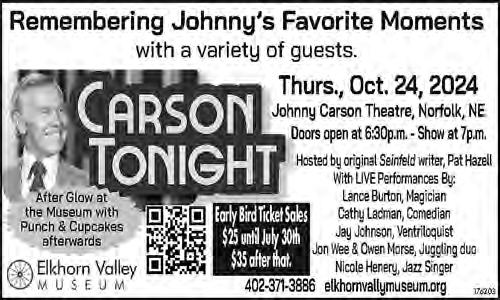
ANNOUNCEMENT
ATTENTION ADVERTISERS! For $225/25 word classified you can advertise in over 150 Nebraska newspapers. For more information contact the Jewish Press or call 1-800-369-2850.
HELLO NEBRASKA! Introducing www.nepublicnotices.com, a new public notice website presented as a public service by all Nebraska newspapers. Free access, fully searchable – because democracy depends upon open government and your right to know.
AFFORDABLE PRESS Release service. Send your message to 155 newspapers across Nebraska for one low price! Call 1-800369-2850 or www.nebpress.com for more details.
FOR SALE – CELL PHONE
SWITCH AND save up to $250/year on your talk, text and data. No contract and no hidden fees. Unlimited talk and text with flexible data plans. Premium nationwide coverage. 100% U.S. based customer service. For more information, call 1-877-768-5892.
FOR SALE - INSURANCE
DENTAL INSURANCE from Physicians Mutual Insurance Company. Coverage for 350 plus procedures. Real dental insuranceNOT just a discount plan. Do not wait! Call now! Get your FREE Dental Information Kit with all the details! 1-855-490-4149 www.dental50plus.com/81 #6258
HOME SERVICES
DOES YOUR basement or crawl space need some attention? Call Thrasher Foundation Repair! A permanent solution for waterproofing, failing foundations, sinking concrete and nasty crawl spaces. FREE Inspection & Same Day Estimate. $250 off ANY project with code GET250. Call 1-844-958-3431.
ELIMINATE GUTTER cleaning forever! LeafFilter, the most advanced debris-blocking gutter protection. Schedule a FREE LeafFilter estimate today. 20% off Entire Purchase. Plus 10% Senior & Military Discounts. Call 1-855-671-2859.
THE BATHROOM of your dreams in as little as 1 day. Limited Time Offer - $1000 off or No Payments and No Interest for 18 months for customers who qualify. BCI Bath & Shower. Many options available. Quality materials & professional installation. Senior & Military Discounts Available. Call Today! 1-855-451-2244
SERVICES – DEBT RELIEF
INFLATION IS at 40 year highs. Interest rates are way up. Credit Cards. Medical Bills. Car Loans. Do you have $10k or more in debt? Call NATIONAL DEBT RELIEF and find out how to pay off your debt for significantly less than what you owe! FREE quote: Call 1-888-353-0702.
WANTED GET YOUR deduction ahead of the year-end! Donate your car, truck, or
ANNETTE VAN DE KAMP-WRIGHT
Jewish Press editor
From time to time, readers bring us old copies of the Jewish Press. The day that we received the ad included on this page (take a look!), Rabbi Maximo Shechet dropped off the edition of July 1, 1994. On the front page, top of the fold, no less, was the headline: Mission will cover Israel from Eilat to Golan There are no coincidences.
The 1994 article, written by Barbara Chandler, Federation public relations director, explained the upcoming JFO Shalom Mission trip, which promised “a unique view of Israel that will make the mission a memorable experience for both first-time and returning participants.”
The fact that all these years later, with many more missions in-between, our community is gearing up for another mission trip to Israel shows that, whatever happens in the world, certain things don’t change.
Mission attracting interest all over town, the July 15, 1994 headline read, as the Jewish Press continued to spread the news then—just as we do today. Chairman of the 1994 trip was Jerry Slusky, then president of the JFO. He said:
“Jewish continuity is a major focus for our community. The Federation, its family of agencies, the synagogues and local Jewish organizations are all working toward programming and services to promote continuity.”
Thirty years later, that continuity is more important than ever. When you join the Jewish Federation of Omaha on this meaningful ten-day mission to our Jewish homeland, you will experience Israel’s culture and traditions, connect with our people and our story and explore the extraordinary beauty and hidden gems of this ancient land.
Whether this is your tenth time visiting Israel or your first, this trip will provide you with a unique experience.
We will visit Tel Aviv, including the old Port City of Jaffa, the
Peres Center for Peace and Innovation, Nachalat Binyamin, which is an open air artists market, hear about the current political and social scene in Israel and take a walking tour of Tel Aviv. Of course, we’ll also visit hostage square.
We will travel south to the Western Negev to meet residents of Gaza envelope communities, meet with Col. (Res.) Grisha Yakubovich and visit the Burnt Cars Graveyard at Tkuma as well as the Nova Music Festival site. We will also meet members of Brothers for Life- IDF vets helping injured soldiers.
In the Western Galilee, the trip takes us to Akko, and we will visit the Partnership Center at Achziv Beach and Partnership friends; we’ll meet Matte Asher & Western Galilee leaders and make a stop at Ceasaria.
No mission to Israel is complete without time in Jerusalem, where we will be in the Old City, visit the Kotel, Yad Vashem, the Machane Yehuda Market and have a festive Shabbat dinner. Also included is a walking tour of Yemin Moshe, a special culinary tour of the Old City, a tour of the Israeli Knesset and a visit to the Israel Museum.
In other words, this is a Mission trip those 1994 participants would tell you to join! Don’t take our word for it. Read, instead, what Florence Brody, partcipant of that 1994 Mission, wrote in the Jewish Press after she came back.
“Since returning from Israel, I feel compelled to put my thoughts on paper. It is very difficult to express the emotions I felt with the mission group. We left as acquaintances and came back like family. The experiences we shared and feelings of cameraderie I will remember all my life. The mission was an awakening of my childhood when in Des Moines, Cantor Edgar taught me so much of what I was actually expriencing in Israel.
“When we recited the Shehecheyanu at Mt. Scopus as we entered Jerusalem, my thoughts were of my mother, an ardent Zionist prior to the establishment of the State of Israel. I felt
her prresence was with me, as I was fullfilling her dreams of a lifetime.
“Many Israelis suggested that we go back to the States and tell what it is like in Israel. I could not do it justice. I can only say one must see it for oneself.” (JP, 11-18-1994)
Joan Kaiman also joined the trip, and wrote:
“From riding Jeeps in the desert to climbing Masada; from visiting kibbutzim to lighting Shabbat candles at the Southern Wall in Jerusalem where the men and women could be together. From having the most wonderful Shabbat dinner with the Chief Cantor of the Israeli Army and singing and dancing around the tables. All these incredible experiences and so much more.
“I have made my Mission to Israel. I now know what UJA stands for and I know I will return. My only regret is that I never went with my husband. I have a feeling if Ben would have gone, he would have stayed there.
“As I stood in the Yizkor tent saying Kaddish for the six million Jews killed in the Holocaust, I felt his presence. Knowing he was glad that I had finally made it.
“To you who read this article who have never been to Israel—go. Don’t put it off. As I, you will never be the same.” (JP, 11-11-1994)
The Jewish Federation of Omaha invites community members to the July 25 information meeting, from 6-7 p.m. in the Ben and Anna Wiesman Family Reception Room. To RSVP for the meeting, please contact Jay Katelman at jkatelman@ jewishomaha.org or 402.334.6461. More details of the trip can be found at our website at www.jewishomaha.org
Required Registration/Deposit needs to be made by Aug. 9. Cost of the trip is $4,607* per person, double occupancy, and $6,457* per person, single occupancy, not including airfare. *Includes $1,000 subsidy for donors to the 2024 JFO Annual Campaign.

Thursday, July 25th
6:00-7:00 pm
Jewish Federation of Omaha
Benjamin & Anna E. Wiesman
Family Reception Room 333 S. 132nd Street
RSVP to Jay Katelman at jkatelman@jewishomaha.org or 402-334-6461
